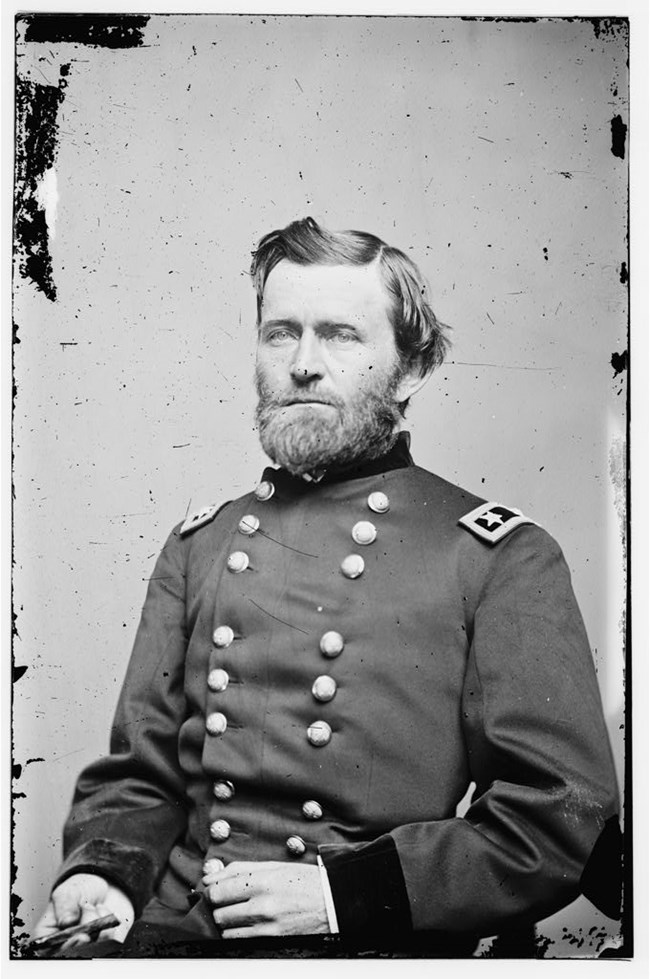
Civil War General Ulysses S Grant
In this article, we’ll learn something about the iconic Civil War general Ulysses S. Grant.
Grant achieved several major victories throughout the war. He demonstrated great tenacity and perseverance to come out on top.
General of the Army of the United States
The General of the Army in the United States is the highest rank in the armed forces. He is commonly referred to as “General-in-Chief”.
Only three generals in American history have held this title: William Tecumseh Sherman, Philip Sheridan and Ulysses S. Grant.
General-in-Chief are the senior military commanders and oversee all military operations for the United States. As such, they hold the title as one of the most powerful generals in American history.
In 1861, the Southern slave states began seceding from the United States and formed the Confederate States of America. Lincoln dispatched troops to these areas in an effort to put a stop to this insurrection.
This four-year conflict claimed the lives of over 400,000 soldiers, making it one of the bloodiest conflicts in American history.
President of the United States
Ulysses Grant is one of the most renowned figures in American history. As both an army commander and president of the United States, he played a pivotal role in ending the Civil War.
He was born in Georgetown, Ohio and raised on his father’s farm. Although he disliked working around his dad’s tannery, he often worked other farms nearby while honing an unusual skill with horses.
His father eventually persuaded him to enroll at West Point, where he graduated 21st out of the class of 1843. Although a poor student, his marks for horsemanship and art were impressive.
Grant achieved several notable victories during the Civil War. President Abraham Lincoln appointed him commanding general of all Union armies in March 1864 – a title not held since George Washington.
Grant was a legendary military leader and passionate advocate for civil rights for black Americans. He signed the act that established the Justice Department and worked alongside Radical Republicans to safeguard blacks during Reconstruction.
President of the Confederate States of America
As the United States began to fracture after the Civil War, Grant accepted the Republican presidential nomination. As president, he helped unite Northern and Southern nations and took steps to repair the economy.
Grant was a legendary horseman who also earned himself a place of honor on the battlefield, where his victories at Fort Henry, Fort Donelson in Tennessee, and Vicksburg, Mississippi earned him the nickname “Unconditional Surrender” Grant and cemented his place among American heroes.
Grant ordered his Union forces to lay siege to Confederate General Robert E. Lee’s Army of Northern Virginia at Petersburg, a small city south of Richmond, Virginia, forcing it to surrender in April 1865.
Although the Civil War began with deep divisions in America, Jefferson Davis’ cabinet worked to keep intramural tensions under wraps and force states to follow war policies. Congress often criticized bureau chief selections, while Provisional Congress often expressed doubts about their direction; yet his detractors rarely showed full dedication to his strategies.
President of the Union
Ulysses Grant was both President of the Union and an outstanding military leader during the Civil War. As chief commander of the Union army, he spearheaded successful campaigns against Confederacy forces.
As the war ended, he worked to uphold civil rights for freedmen through Reconstruction legislation. Additionally, he engaged in battles against white supremacists and Native American tribes throughout the west.
Grant was immensely successful during the war, yet found it difficult to provide for his wife and two children after it. In 1852 he relocated to Fort Vancouver in Washington state, hoping to bolster his salary through business ventures.
In 1854 he resigned from the Army due to financial losses from his business ventures and a lack of time with family, particularly Julia Dent Grant.
Grant had eight years to try to unify North and South, but his presidency was marred by scandals and a bitter fight over Reconstruction.
